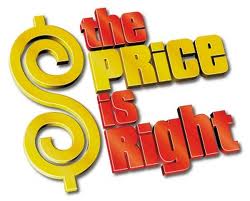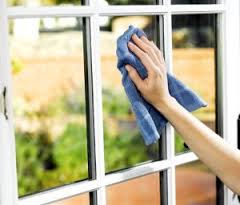 An oft-misunderstood role in the home industry is that of the Public Adjuster. I recently sat down with one of the top Public Adjusters in the State, Floyd Ostrowsky of Reliant Adjusters Group, to get a better idea of what their profession does and how a homeowner might benefit from working with one.
An oft-misunderstood role in the home industry is that of the Public Adjuster. I recently sat down with one of the top Public Adjusters in the State, Floyd Ostrowsky of Reliant Adjusters Group, to get a better idea of what their profession does and how a homeowner might benefit from working with one.

1. What is a public adjuster? The simplest answer would be an advocate for the people! A trained and state licensed professional hired by a homeowner and or business owner to represent them in the event of property damage.
2. Why would a homeowner need a public adjuster? When a homeowner has an insurance claim they are best served having someone who truly knows what they’re entitled to for repairing their home and other expenses. The Insurance companies have their people defending their interests, so it only makes sense that a homeowner does as well. A wise man once told me “You know what you know and you don’t know what you don’t know!” That said, having someone who knows how to manage the claim makes a substantial difference in the homeowner’s financial recovery.
3. How is a public adjuster different from a staff or independent adjuster? Great question! Both staff adjusters and independent adjusters work for the Insurance company whereas a public adjuster is hired by the insured to represent their interests.
4. When would a homeowner need a public adjuster? It is always best to consult with a public adjuster whenever a homeowner has suffered a property loss. We can review the policy, uncover what is covered and suggest a next best step.
5. In what circumstances? Public adjusters work specifically on property damage claims so we can assist with all claims arising, from the most common being water damage up to and including a full scale natural disaster such as a hurricane and everything in between, be it flood, mold, lightning strike, fire, smoke, structural, sinkhole, theft and vandalism. Basically if it causes damage to your home it is in the homeowner’s best interest to have a Public Adjuster give it a look.
6. How does a public adjuster get compensated for their services? Another great question, public adjusters work on a contingency basis. Basically we only get paid once the homeowner or business owner receives payment from their insurance company. If they do not receive payment, neither do we – so there is no risk.
7. When is the right/best time after a disaster for them to contact a public adjuster? Of course, first things first – take care of your family and mitigate your loss. Then, in my opinion, it is always best to engage a public adjuster right away. Being engaged from the beginning helps keep the process running smoothly. A good public adjuster can basically start the claim for the homeowner and manage it through completion. That’s not to say it is too late to engage a public adjuster once you’ve started a claim or even if a claim has been denied. Lastly a public adjuster can even reopen a claim up for to five years, if there is relevant reason to do so.
8. How do you find/select the right public adjuster? First, always make sure they are licensed and bonded. After that, there is nothing better than a referral. If you know someone who was satisfied with how their claim was managed that would be a good indication or ask for references. At Reliant we are always happy to supply references. It serves two purposes – it gives new clients confidence and maintains top of mind awareness of those we have worked for in the past. The greater majority of our business is word of mouth – when you are doing the right thing word gets around quickly.
9. What sets Reliant Public Adjusters apart from its competitors? At Reliant, we pride ourselves on customer service and great communication. Keeping homeowners and business owners in the loop on the status of their claims is a priority. Added to that, we are a team of experienced professionals, each with our own unique backgrounds, myself having 30+ years of negotiation in business experience and my associates, one with a wealth of construction experience and the other formally an independent adjuster working for the insurance companies. As a team we have the knowledge and experience to deal with whatever possibly comes our way.
Wow, this was amazing information! We would like to thank Floyd for making the time to  sit with us to explain his profession so clearly. You can contact Floyd Ostrowsky of Reliant Public Adjusters at 954.805.3602.
sit with us to explain his profession so clearly. You can contact Floyd Ostrowsky of Reliant Public Adjusters at 954.805.3602.
















![Neighborhood Expert [QuotePix.com]](https://parklandtoday.files.wordpress.com/2014/06/neighborhood-expert-quotepix-com.jpg?w=150&h=99)















